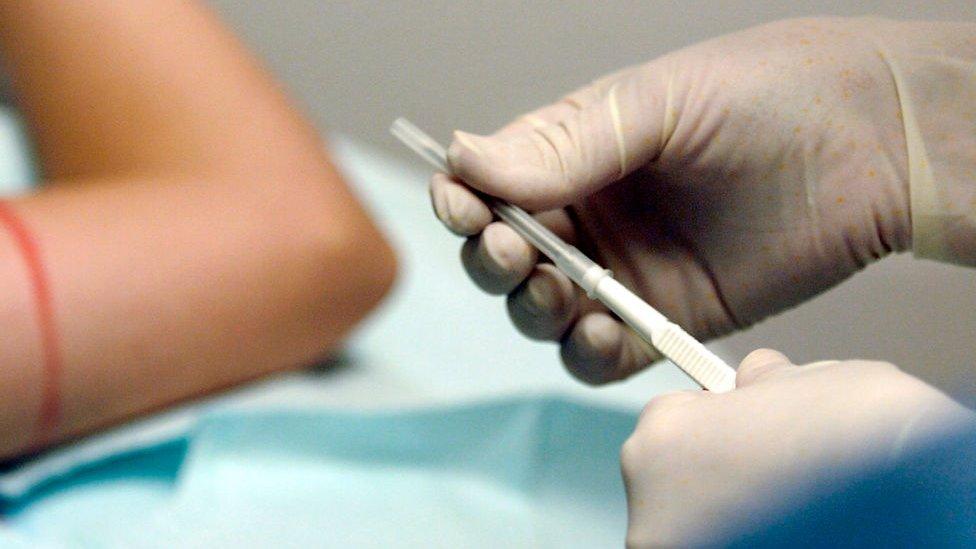More than 700 women contacted over contraceptive
- Published

The contraceptive implant is a small flexible plastic rod that is placed under the skin in a woman's upper arm.
More than 700 women in Northern Ireland are being contacted about contraceptive implants they have had inserted into their bodies in the past three years.
The 大象传媒 understands a small number of women have become pregnant.
The review of patients goes back to 2017 and at present involves women in the Belfast and South Eastern health trusts.
The Belfast Trust apologised for any concern caused and said it had begun contacting patients.
It is understood authorities became aware of the problem after a woman discovered she was pregnant.
This happened at the latter part of last year.
A doctor who is at the centre of the investigation is not working at present.
A total of 752 women are being contacted.
They are being asked to check to see if their implants are still visibly in place.
The contraceptive implant is a small flexible plastic rod that is placed under the skin in a woman's upper arm, usually by a doctor.
It releases the hormone progestogen to prevent pregnancy and should last for three years.
According to some manufacturers, no implant is 100% effective.
In a statement, the Belfast Trust said it is "currently reviewing a number of patients who were treated in family planning clinics between October 2017 and August 2020".
It said any patients affected would be contacted within he next 24 to 48 hours, if they had not already been contacted.
Patients are being contacted by the Sexual and Reproductive Health Service.
The trust said when being contacted, those affected are given "advice and guidance" and given the chance to book an appointment for examination.
The trust has said this was a precautionary review, which was being carried out to make sure proper procedures were followed and the device is properly fitted and present.
Related topics
- Published29 August 2018
- Published10 September 2020